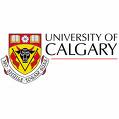A University of Calgary audit into its relationship with the climate lobby group, Friends of Science (FOS), reveals that in setting up two trust funds on behalf of FOS, U of C Professor Barry Cooper may have contravened Revenue Canada and Elections Canada laws – and, in diverting money to his wife and daughter, he most certainly broke rules at the University itself.
The audit was assessing allegations that:
1. Prof. Cooper helped secure Revenue tax receipts for FOS donors, even though FOS does not have charitable status;
2. Prof. Cooper channeled money through the university that was later used to fund what “may be considered third party advertising under the Elections Act” – an ad campaign that was never registered and would contravene Elections Canada laws;
3. Prof. Cooper vastly overstepped his authority in authorizing payments on behalf of FOS to public relations companies and political lobbyists – in one case dispersing more than $100,000 to the PR firm APCO Worldwide
4. Prof. Cooper used U of C trust fund money to “employ” his wife and daughter, without appropriate permission and in contravention of university rules. 5. The activities funded through the trust accounts “were not legitimate scientific research and education and were funded by anonymous donors to promote special interests.” The U of C Auditors glossed over the first two allegations, appropriately leaving any determination of wrongdoing to Revenue Canada and Elections Canada, which are currently reviewing the case. (Elections Canada initiated its investigation after DeSmogBlog manager Kevin Grandia filed a complaint, but the University itself referred its findings to both Revenue Canada and Elections Canada.) On items #3 and #4, the audit revealed evidence that Prof. Cooper is most certainly guilty. And on item #5, on the question of whether any part of Cooper’s FOS activities could legitimately be categorized as “scientific research and education,” the auditors said: “the evidence is not conclusive.” This investigation was triggered more than two years ago when a retired oil geologist named Albert Jacobs told the Globe and Mail that Cooper set up the U of C trust funds so that FOS could receive money from oil and gas firms but still claim that it was an independent organization. The anonymous donors would give money to the Calgary Foundation, which would then write a cheque to Cooper’s “educational” trusts. And Cooper would pass the money along to the Friends of Science. The U of C audit confirms that the Calgary Foundation gave Cooper’s trust accounts two cheques of $100,000 each. The auditors also confirm that another $100,000 was donated by someone “known to the university” who had asked to remain anonymous. And all this money was given to the FOS. Yet, the auditors say: “None of the grants funding to the (Cooper trust) Accounts were from anonymous donors.” This, clearly, strains the definition of “anonymous.” If the donors could hide behind the Calgary Foundation – or even the university itself – their anonymity is intact, and the Friends of Science could continue to say that they had received no money from oil companies; most of their funding came from Barry Cooper’s slush fund. But while the auditors seemed to be covering the university’s tracks wherever they could, they still recorded a good deal of damning evidence. For example (and as the DeSmogBlog has reported before), FOS boasted in its own newsletter that it was specifically targeting swing federal ridings with the advertising campaign that ran “coincidentally” in the middle of the last election. FOS further boasted in a post-election newsletter that their efforts had been successful. On the question of whether FOS donors received tax donations inappropriately, the auditors included this quote, taken from the FOS website: An attachment from the FOS website stating: “You can now make a tax deductible donation to the Friends of Science by using the newly established Trust Account with the University of Calgary.” No mention here, or anywhere, that donors might be wanting to support university research or impartial “education”. Missing at this point is any mention of consequences. Although the auditors made many intelligent recommendations to prevent the recurrence of this sort of trouble, and although the university agreed pretty much throughout to follow through on that advice, at no point does anyone suggest that the university might call Cooper to account. In fact, Cooper’s name is blanked out throughout the document – as is a fair amount of other (probably juicy) detail – under the Freedom of Information and Protection of Privacy Act. U of C “had sufficient concerns last year to sever any relationship with Friends of Science,” said Provost and Vice President Academic Alan Harrison. And for that – and for initiating and acting promptly on this audit – the university deserves credit. It is also appropriate to stand down until Revenue Canada and Elections Canada finish their deliberations. At that point, however, the public interest should take precedence over Cooper’s privacy protections. He has broken U of C rules. He has brought a significant amount of embarrassment on the institution. And there is little doubt that he conspired with the Friends of Science to hide the oily origin of their funding. At some point, he should pay the price.
Subscribe to our newsletter
Stay up to date with DeSmog news and alerts






